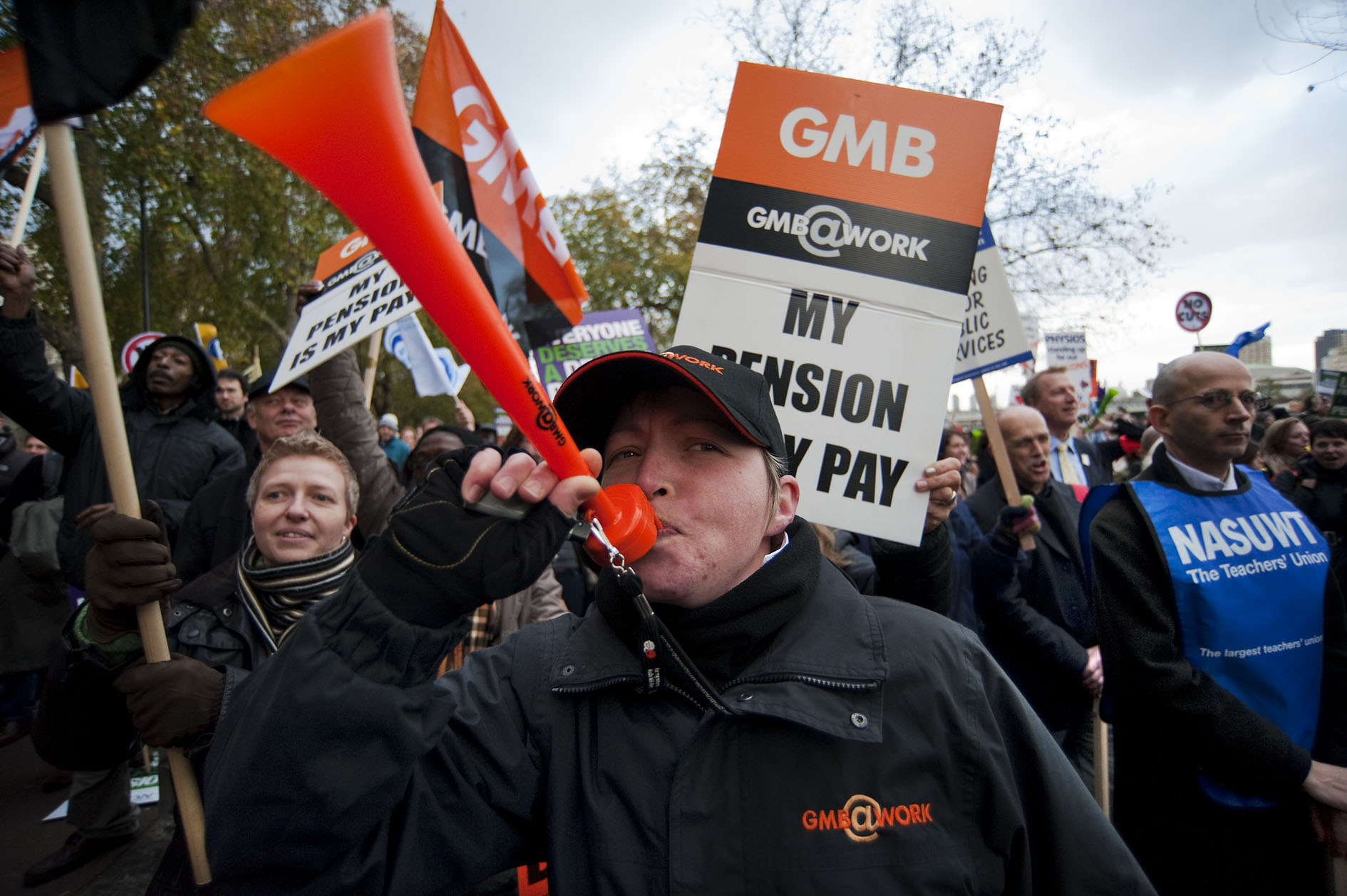Ian Harris
The 2012 congress for the GMB general union, one of Britain’s fastest growing unions, showed some successes in the private sector but also frustration from rank and file delegates over pensions and the union’s relationship with New Labour.
Three recent successes stood out:
- At London Olympic sites, GMB has become virtually the only union among security staff, recruiting up to 400 members a week. The union is also taking steps to ensure that GMB members are preferred for employment by G4S and other security firms after the Olympics.
- A long campaign against bullying, discrimination and blacklisting for Carillion workers in Swindon and London. Legal pressure and strike action has forced Carillion to back down over blacklisting and offer compensation in some cases. A Carillion delegation spoke to rapturous applause. General secretary Paul Kenny announced GMB was withdrawing all investment from Carillion holdings – though members might ask why these investments were made in the first place.
- After an intense legal struggle, workplace organising and several strike ballots, GMB became the first union in the world to negotiate a national bargaining agreement – won by Asda distribution workers – with retail giant Wal-Mart. But the struggle continues to gain such an agreement for the thousands of Asda store workers, who have already won national recognition.
For the public sector, Kenny and other speakers lauded the ‘day of action’ (note not ‘strike’) over pensions on 30 November 2011. But no mention was made of the sell-out that followed in December, nor how the fight could be continued.
At a fringe meeting, the national pensions officer explained the attacks on state and public sector pensions. All attempts in negotiation and legal wrangling failed.
Platform speakers said that, across different branches of the public sector, members returned surveys clearly rejecting the pensions deal, which expects members to work longer, pay more and get less for their pensions. A question from the floor asked whether this meant further strike action over pensions. The answer was long and convoluted, but meant ‘no’.
Popular subject
25% of motions from branches called into question the union’s stance towards the Labour Party. Though many of these motions were shot down pre-congress or ruled out of order by the standing orders committee, many got through.
As 2012 was not a ‘rules congress’, disaffiliation could not even be discussed, despite an impassioned point of order raised by a delegate from Leeds at the immediate start of the conference.
But motions condemned Labour’s stance towards 30 November and public sector cuts. The political session that followed saw a three-hour hammering of the Labour Party, as delegate after delegate expressed their disgust at the weakness of the Labour leaders.
But none of the delegates called for the creation of a new party, or the possibility of supporting candidates other than Labour. This seemed to come more from a sense of traditional loyalties and the lack of a sizable alternative, rather than subservient attitude to Labour. Very few delegates mentioned the idea that Labour might have made ‘nicer cuts’ or stopped cuts altogether.
The GMB Central Executive Committee’s special report, given by Kenny, criticised Labour including the party’s lack of democracy. But Kenny still concluded that Labour was the only game in town, and made a plea for activists to get involved in Labour at a local level, in an attempt to reclaim the party.
Among many lay delegates however, it seems there is a search for an alternative to the GMB’s official position, as shown by the manufacturing section’s response to Tony Mulhearn’s speech.
Socialists in the GMB should support the ‘Student Worker’ initiative to recruit more young workers to the union, as currently only 6% of members are under 30.
Many delegates took a Socialist Party newsletter, and 30 copies of the Socialist were sold.
Annoyance at the stage managing of congress was widely expressed. Despite the political views of the leadership, it is clear that there is the possibility for the left to grow within the GMB.









